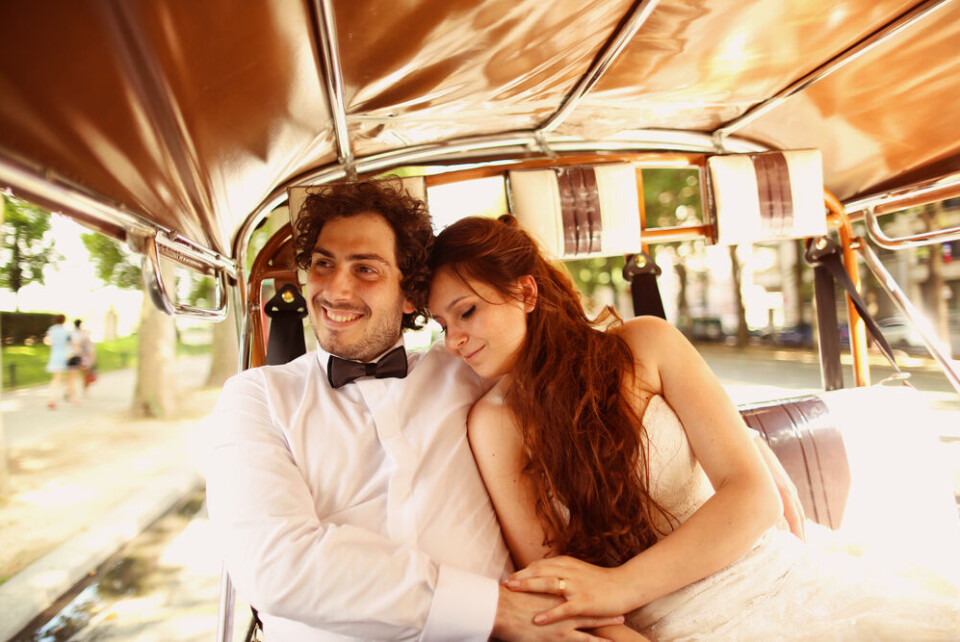-
French MPs vote to end ‘marital duty’: what new law changes on sex and consent
If adopted, the new law will establish that ‘marriage is not sexual servitude’
-
Which person's image must be displayed in French mairies?
The French flag, the motto “Liberté, Égalité, Fraternité” as well as a bust of Marianne are often seen
-
Did you know? Marrying a dead person is possible in France
Posthumous marriage is permitted in a unique legal arrangement
What documents are needed by non-residents to marry in France?
Foreign nationals may be asked to provide more documents than French people such as a certificat de célibat

Reader Question: I have a dual British / French nationality and have lived in the same commune for 29 years. My son and his partner who are both British and live in England want to get married in France. What documents do they need to provide?
The good news is your son and partner can get married in France in the commune where you reside.
Your residence does not even need to be your main home for this to apply.
It can be a secondary residence or, in theory, a rental property as long as you have been living there for at least one month at the date of the publication of the bans (having said this, the stronger your links to the commune, the less issue there is likely to be with obtaining permission for the wedding).
The documents needed for two foreigners to get married in France are generally the same as for two French people getting married, although the mairie may ask for some extra paperwork. As the parent based in France, you will also need to prove that you have a home in the commune.
What documents are needed?
Both your son and his partner will have to supply a form of ID and you will have to provide proof of residence, such as a utility bill from the last three months or your last property tax statement.
If the couple were born outside of France, they will then need to provide copies of their birth certificates. These must be translated into French by a sworn translator and this document must be no more than six months old.
Two additional documents which may be required compared to French citizens are a certificat de célibat (certificate of celibacy) and a certificat de coutume, a ‘certificate of custom’ that proves that a foreign national has the legal right to be married in France.
However, UK nationals cannot get these certificates because the British government does not provide them. They can instead complete and provide self-declaration forms, which can be found here, along with this explanatory note.
The certificate of celibacy is to show that you are not already married. The certificate of custom proves for example that the person is of legal age in their country of nationality and is willing and able to get married.
Next, it is necessary to provide information about the witnesses. You can choose a minimum of two and a maximum of four witnesses. You will need to give their full name, their date and place of birth, their profession, their residency and a copy of their ID document.
Once they have gathered all these documents and information, they must supply them to the mairie of the commune where they wish to get married.
Additional interviews may be needed
The registrar will interview your son and his partner. If they deem it necessary, the registrar might also interview them individually.
The wedding will be announced through the publication of the bans. They will be published for ten days at the relevant mairie.
Your son and partner can get married anytime after the ten days have elapsed and within the following year.
The wedding must take place at the mairie in a room open to the public. Your son, his partner and their witnesses must be present and it must be performed by the maire or a maire adjoint.
Note this is the procedure for a civil marriage. If your son and partner wish to get religiously married in France, this would require a different procedure and documents, such as proof of baptism.
Additionally, any person who has been residing in France for at least a month is legally permitted to get married in their own commune of residence.
Finally, non-French nationals without links to France (either themselves or their parents, including the ownership of a home in France) can get married in some French territories outside of the mainland.
The areas where this is possible are: New Caledonia, French Polynesia, Saint-Barthélemy, Saint Martin, Saint-Pierre and Miquelon, and Wallis and Futuna.
Related articles
























